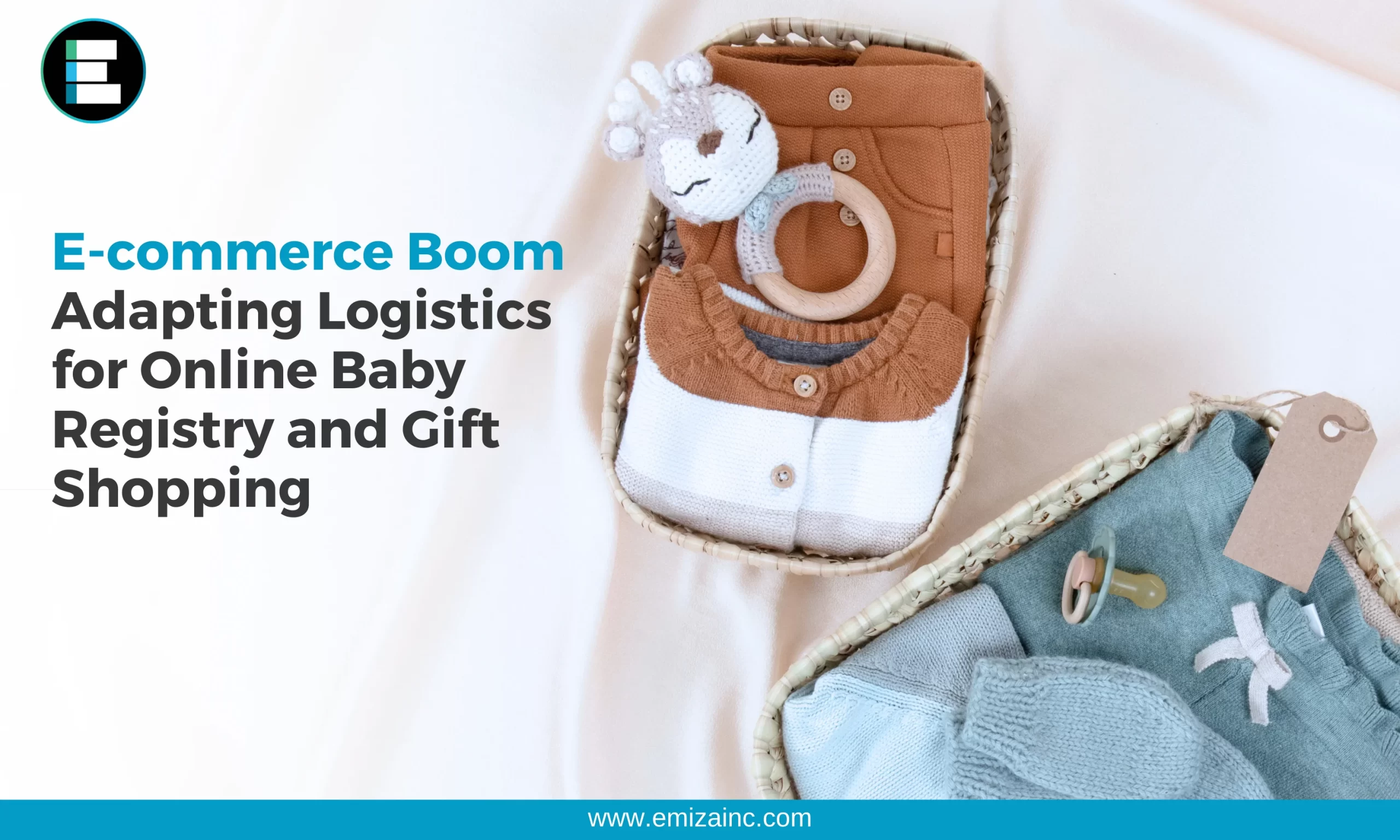The e-commerce industry in India has witnessed an unprecedented boom in recent years, and the baby care sector is no exception to this trend. With the convenience and accessibility offered by online shopping, new parents are increasingly turning to e-commerce platforms to fulfil their baby registry and gift shopping needs.
India’s baby care industry has been experiencing remarkable growth, driven by factors such as rising disposable incomes, changing lifestyles, and increasing awareness about child nutrition and healthcare. According to a report by Ken Research, the Indian baby care market is expected to reach USD 34.7 billion by 2025, with a compound annual growth rate (CAGR) of 17.4% from 2020 to 2025. This growth is primarily attributed to the increasing birth rate, urbanisation, and parents’ willingness to invest in premium baby care products.
Online Baby Registries: A Growing Trend
The concept of baby registries, where expecting parents create a list of items they need for their newborns and share it with friends and family, is not new. However, the digital transformation and the rise of e-commerce have given birth to online baby registries, which offer a myriad of benefits to both parents and gift-givers.
Convenience: Expecting parents can create and manage their baby registries from the comfort of their homes, eliminating the need for physical store visits.
Wider Selection: Online registries provide access to a vast array of baby products, brands, and price points, ensuring that parents get exactly what they want and need.
Ease of Sharing: Parents can easily share their baby registry with friends and family through email, social media, or messaging apps, making it convenient for gift-givers.
Real-time Updates: Online registries often allow parents to track purchases and see which items have been bought, reducing the chances of duplicate gifts.
Shipping Options: Many e-commerce platforms offer flexible shipping options, including direct delivery to the recipient’s address, making it hassle-free for gift-givers.
For example, BabyChic, a prominent online baby care retailer in India, offers a user-friendly platform for creating and managing baby registries. Their extensive product catalogue includes everything from baby clothing and diapers to strollers and cribs, making it a one-stop shop for expecting parents and gift shoppers alike.
Unveiling the Crucial Role of Logistics in the Baby Care E-commerce Sector
Last-Mile Bliss: The final leg of delivery, the journey from the local distribution centre to the warm embrace of a baby care product recipient’s home, stands as a linchpin in e-commerce logistics. In a country where traffic bottlenecks and challenging terrains are part of the daily landscape, the quest for efficient last-mile delivery solutions becomes imperative. Notable players like Delhivery and Ekart have finely tuned their expertise to provide last-mile services specially designed to navigate the unique challenges of delivering baby care products in India.
Warehousing and Infantile Inventory Management: Effective warehousing and inventory management are the quiet guardians of ensuring that essential baby care items are always at the ready. E-commerce entities often rely on strategically positioned warehouses to trim down delivery timelines. Take, for instance, FirstCry, a leading online baby care retailer in India, which has strategically placed warehouses throughout the nation to ensure swift deliveries of tiny treasures.
Reverse Hugs and Logistics: In the baby care sphere, returns are not an unusual occurrence, owing to size mismatches, defects, or evolving preferences. The graceful handling of reverse logistics is paramount to sustaining the smiles on both ends of the transaction. E-commerce enterprises must establish clear return policies and mechanisms to tenderly handle the return of baby care products, ensuring that each item finds its way back into the arms of another loving family.
Technology’s Lullaby: The integration of advanced technologies such as GPS tracking, route optimization, and inventory management software is the soothing lullaby in the logistics symphony. These tech innovations enable real-time shipment tracking, mitigating the risk of delays and errors, ensuring that each baby care product reaches its destination promptly and in perfect harmony.
Packaging with a Baby’s Touch: Packaging becomes the cradle of assurance, ensuring that baby care products reach their destination in pristine condition. Special attention must be given to the packaging of items like baby clothing, toys, and delicate merchandise to safeguard against any disturbances during transit, ensuring that they arrive ready to embrace their little owners.
The Future of E-commerce in the Indian Baby Care Industry
The baby care industry in India is poised for continued growth, and e-commerce will play a pivotal role in shaping its future. As more parents turn to online platforms for baby registry and gift shopping, e-commerce businesses must continually adapt their logistics strategies to meet the evolving demands of this niche market.
Here are some trends and developments to watch out for:
Personalised Shopping Experiences: E-commerce platforms will increasingly use data analytics and AI to offer personalised product recommendations and shopping experiences to parents, making it easier for them to find the right products for their babies.
Omnichannel Presence: Many e-commerce businesses are expanding their reach by integrating with physical stores, allowing customers to shop online and pick up products from nearby stores, a model known as BOPIS (Buy Online, Pick Up In-Store).
Health and Safety Products: With the heightened awareness of health and safety due to the pandemic, the demand for baby care products such as sanitisers, masks, and hygiene-related items is expected to rise.
Sustainability: Eco-friendly and sustainable baby care products will gain popularity as more parents prioritise environmentally responsible choices for their children.
Conclusion
The Indian baby care industry is experiencing a remarkable transformation, with e-commerce platforms at the forefront of this change. Online baby registries have become an indispensable tool for expecting parents and gift shoppers, offering convenience, choice, and ease of sharing. However, the success of D2C businesses in this industry heavily relies on efficient logistics operations.
Companies like BabyChic, FirstCry, and Mama’s Mart are leading the way by adapting their logistics strategies to cater to the unique needs of the Indian market. As the baby care industry continues to grow and evolve, logistics will remain a critical element in ensuring that parents receive the products they need for their little ones in a timely and hassle-free manner. With technology, innovation, and a customer-centric approach, e-commerce businesses in the baby care sector are well-positioned to thrive in the years to come, meeting the demands of an ever-expanding customer base in India.



